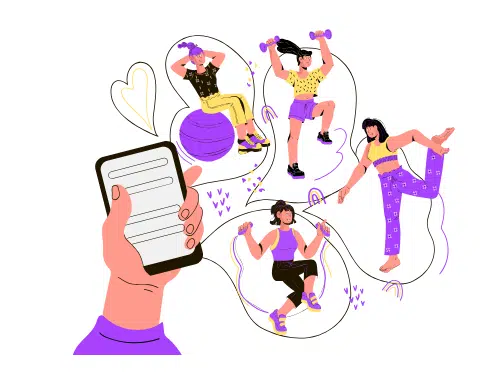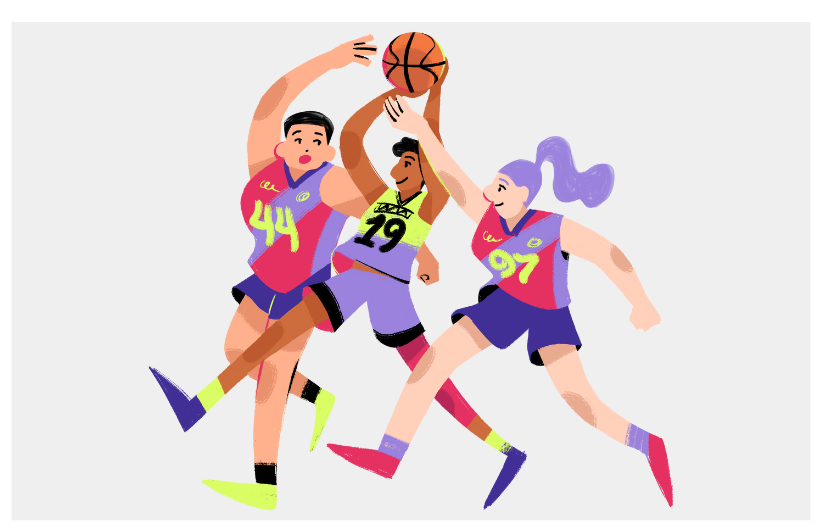» Physical and mental well-being
The Benefits of Sports in reducing Anxiety
The Benefits of Sports in reducing Anxiety: Harnessing the Power of Physical Activity for Mental Well-being
Introduction
Anxiety is a commonly experienced mental health condition that can greatly affect an individual’s daily life. However, there is hope in managing and reducing anxiety through engaging in sports and physical activities, which offer a natural and holistic approach.
In this blog, we will explore the empowering effects of physical activity on mental well-being and delve into the science-backed benefits of incorporating sports into anxiety management strategies.

Understanding the Connection between Sports and Anxiety
Sports and physical activities have a significant impact on our mental health, including anxiety. Let’s explore how participating in sports can benefit individuals struggling with anxiety:
1. Stress Reduction
- Physical Release of Tension: Sports provide an outlet for releasing built-up tension and stress, allowing individuals to unwind both physically and mentally.
- Endorphin Release: Physical activity triggers the production of endorphins, natural chemicals that enhance mood and alleviate anxiety symptoms.
- Harvard Health Publishing – “Exercise and Depression”
2. Boosted Mood and Self-esteem
- Increased Confidence: As individuals engage in sports and see improvements in their abilities, it can boost their self-belief and confidence, countering anxiety-related self-doubt.
- Social Interaction and Support: Participating in team sports or group activities fosters social connections and a support network, providing a sense of belonging and reducing feelings of isolation associated with anxiety.
3. Distraction and Cognitive Benefits
- Enhanced Focus: Engaging in sports can redirect attention away from anxious thoughts, creating mental space and offering relief from constant worry.
- Improved Cognitive Function: Regular physical activity has been linked to improved cognitive function, memory, and concentration, which can positively impact anxiety management.
4. Regulation of Stress Hormones
- Cortisol Regulation: Sports and physical activity can help regulate cortisol, the stress hormone, reducing its impact on anxiety levels and promoting a more balanced stress response.
Incorporating Sports into an Anxiety Management Routine
The many benefits of sports make it an ideal tool for managing anxiety. Here’s how you can harness the power of physical activity
Choose an Enjoyable Activity
- Identify a sport or physical activity that you genuinely enjoy and find fulfilling. This intrinsic motivation can increase commitment and long-term engagement.
- Experiment with different activities like swimming, hiking, dancing, or team sports to find what works for you.
Consistency and Moderation:
- Aim for regular participation in physical activities, starting with a manageable routine and gradually increasing duration and intensity.
- Listen to your body and avoid pushing yourself beyond your limits. Remember, moderation is key to preventing burnout and injury.
Mindfulness and Intention:
- Combine physical activity with mindfulness techniques, such as focusing on your breath or being fully present in the moment, to enhance the stress-reducing benefits of sports.
Seek Professional Guidance:
- Connect with a certified sports therapist or a mental health professional specializing in sports psychology. They can provide personalized strategies and guidance to optimize the benefits of sports for anxiety management.
- The Mindful Athlete – “How to Practice Mindfulness in Sports”
Conclusion
Incorporating sports and physical activities into one’s routine offers a holistic approach to managing anxiety. By engaging in sports, individuals can experience reduced anxiety symptoms, increased self-esteem, and improved overall quality of life. Remember to seek advice and support from healthcare professionals or mental health experts to tailor your sports routine to your unique needs and circumstances.
Sources:
- Anxiety and Depression Association of America (ADAA) – “Physical Activity Reduces Stress”
- Eather, N., Wade, L., Pankowiak, A. et al. The impact of sports participation on mental health and social outcomes in adults: a systematic review and the ‘Mental Health through Sport’ conceptual model. Syst Rev 12, 102 (2023).
- U.S. Department of Health & Human Services – “Physical Activity and Mental Health”
- National Alliance on Mental Illness (NAMI) – “Physical Health Can Impact Mental Health”
Remember to seek advice and support from healthcare professionals or mental health experts for personalized guidance.


